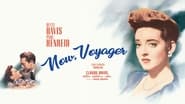Actuakers
One of my all time favorites.
AnhartLinkin
This story has more twists and turns than a second-rate soap opera.
Curt
Watching it is like watching the spectacle of a class clown at their best: you laugh at their jokes, instigate their defiance, and "ooooh" when they get in trouble.
Dick-Kringle
Let's jump straight to the point: we're all here for Bette Davis, and, for all intents and purposes, we stay the whole 118 minutes solely because of Bette Davis.Mrs. Davis began her rise to prominence in Hollywood by challenging the notions surrounding what an A-List movie-star should look like, and sealed her fate by simply being better than everyone else around her, all the time. I've always had a personal reverence for her, as I've found time and time again that many actors can give great, excellent, truly inspiring performances - but only a few can accurately be described as a vision on screen, and only a tiny fractions of them can truly be considered to have the raw talent necessary in order to act circles around every single one of their wildly talented cohorts that help make their great films possible.Bette Davis was one of these visionaries. Not only was she one of them, but she very well might have been the best of them as well. The word "vision" doesn't even begin to describe her in this film. From beginning to end, her performance is sincere, her actions are believable, and her struggles are deeply moving, through and through.In a way, this film reminds me of Delbert Mann's Marty. Both films depict ordinary folks just trying to be happy, being pushed around and kept from it by the people who supposedly love them, and finally finding happiness, grace, and solace through purity of the heart and emotion long suppressed by the outside forces at work. Both films represent a brutal truth and a refreshing take on humanity from an otherwise deliriously optimistic era of cinema, ones that are about as honest and pointedly forthright as they are complete accurate and deeply relatable. As someone who has often turned to solitude and even isolation in the face of his own inability to function adequately around others and generally within human society at large, these films move me in a way others fail to, and the feeling of being given a voice, something that rarely happens for people in my position, is truly a remarkable thing, something that should be cherished and appreciated when they rarely come around. The problem is, the film is just... way too much. The coincidences are too contrived, and there's just way more heart-string pulling and swoon-inducing fluff for the simple script to realistically handle. What's perfectly believable, and remarkably poignant, is for a young woman, beaten into emotional submission by cruel, woefully inconsiderate family members and needled by the unbearable nature of this existence, being saved by common sense psychological practitioning, and finally being able to blossom into the beautiful, confident woman who for far too long stayed shrouded in the despair from which she believed she could never break free of. What's more difficult to believe is that on her first voyage alone she takes in an overbooked passenger that just so happens to be a handsome man, that she gets into a cliffside-automobile accident with him and is forced to spend the night under the stars with him, that they fall in love, that he has a daughter going through the exact same torment she endured as a child, that they met at a party weeks/months later because he just so happened to be in town on business with mutual associates of theirs, that her daughter just so happened to be at the refuge at the same time she checked herself in a week later, that they bonded before she learned that she was indeed the man's daughter, and so on and so forth. These overwrought narrative concurrences work only to take away from the poignant realism the film was previously doing so well, and instead plunges it into the very cliques the film had worked so hard to refute.If this film had instead been only 80 or so minutes in length, if they had only briefly included the girl at the end (who did a very good job for a girl her age, despite her place in the movie) instead of expanding the movie with an additional 40 minutes of Bette Davis/that girl bonding, camping, inspirational happy-fun-time, maybe I would be sitting here giving it 9 or 10 stars instead of 7.However, while the film has its flaws, its still a good picture, and the fact that it is is very much thanks to Mrs. Bette Davis - who was, after all, one of the greatest to have ever lived.
Edgar Allan Pooh
. . . but it certainly qualifies as the most fabulous effort to get young teens hooked on Cancer--I mean, addicted to cigarettes (a.k.a., "coffin nails")--ever to hit the Big Screen. I doubt very much that novelist Olive Higgins Prouty dashed off a tale about cool lovers lighting up Kools, Old Golds, Chesterfields, Pall Malls, Winstons, Kents, Camels, etc., after deciding that turning their windpipes into blackened chimneys was the most nurturing thing that they could possibly do with their affections. Of course, Big Tobacco was not bribing Ms. Prouty with untold billions of off-the-books cash, as they did with the Hollywood moguls for decades. If you cut the smoking scenes from NOW, VOYAGER, you'd be left with a much shorter flick constituting an incoherent mess. NOW, VOYAGER was released during WWII, which invites comparison to another propaganda masterpiece deserving a rating of "10," since it also was extremely effective in getting across its single-minded message, the Magnus Opus of Hitler's personal Videographer (Leni Riefenstahl), known here as TRIUMPH OF THE WILL. Even if you blame Mr. Hitler for ALL 100 million WWII deaths, his toll pales in comparison with the more insidious carnage wreaked over the centuries by Big Tobacco. As BT's primary propaganda arm, Hollywood could be responsible for the lion's share, including many limbs of MY family tree. NOW, VOYAGER may have doomed some of YOUR direct ancestors, as well.
LeonLouisRicci
The Much Mentioned "Ugly Duckling" Theme Represented in this Film is a bit Misrepresented. The Ugly Duckling was Born Ugly. Physically Different, Anthropomorphically Strange, whereas Bette Davis is Not Physically Ugly or Different, She is Psychologically Scarred and Cannot Present Herself as Normal or Pretty because She is Repressed to the Point of the Ability or Desire to Externally Show Anything Other than that what She has been Told..."You were late and unwanted."Although the Mother is Presented to be Cruel and Unusual and a Tyrant to Her Daughter, the Metamorphosis of the Young Miss Vale is Nothing More than Cosmetic (no plastic surgery) and Interpersonal. The Psychiatry Clinic and the Claude Rains' Doctor is Thankfully Subtle and Restrained for the Era that was Becoming More and More Infatuated with the "Science". The Freudian Mother Complex Finally Peaked in Films with Psycho (1960), but here it is just as Horrifying. The Only Thing that Really "Cured" Charlotte was the Removal from Proximity from Her Excessively Depressing Environment.This was Bette Davis' Biggest Box Office Success and is One of Her Best Remembered Roles and the Movie is Among the Most Popular "Weepies" of All Time. Her Romantic Interlude with Paul Henreid is Remembered and is Consequential to the Story to be Sure, but it Could be Said that the Movie Works so Well and Reaches its Emotional Level because of Charlotte's Natural Love and Mothering of the Twelve Year Old Tina (a warm and heart wrenching performance and character).It is that Sacrifice and Attention Given the Damaged Tina, that Makes Charlotte so Endearing and the Third Act is so Essential to the Plot and Cannot Help but be the Lynchpin to All of the Romantic Ruminations that Came Before. The Final, Oft Quoted Line is Embraced and Celebrated Anytime the Movie is Discussed. It's a Good Line, but it Could Not have Worked so Well without the Uncelebrated Character of Tina, the Little Lost Girl, that Charlotte Vale can...Now, Mother.
TheLittleSongbird
Now, Voyager is a brilliant film in every area, one where I am still trying to figure out why it took me so long to see it as a fan of classic film and as someone who considers All About Eve as one of her all-time favourites and Bette Davis' performance in it one of the all-time greats. Now, Voyager is beautifully produced, with each scene lushly photographed and with the costumes and sets very sumptuous, particularly striking at the end which has a real magical touch. There is also Irving Rapper's grand direction, which shows a director in command of what he wants, and an intelligent script that is sharp and provides a good amount of emotional impact(Davis' final line really resonated with me) without resorting to soap-opera-quality. The story is never dull and very poignant with a subtly gritty edge, the ending being romance at its absolute finest, with two scenes that have rightly gone down in cinematic history. One being Paul Henreid's lighting of two cigarettes and the other being Davis' speech which is a genuine tear-jerker. The ugly-duckling-turned-into-a-swan theme is a potentially hackneyed one but Now, Voyager is one of those rarities that does something truly special with it. Henreid is the personification of suave, Gladys Cooper is outstandingly formidable as the annoying over-bearing mother figure and Claude Rains, one of those rare actors who I've never seen a bad performance from, is beautifully sympathetic. The two best things about Now, Voyager are Bette Davis and Max Steiner's score. Davis is just fantastic in one of her greatest performances, a very close second to her iconic performance in All About Eve, she's never looked lovelier too. And Steiner's score is haunting, swells with emotion and romance and sounds in places almost symphonic, it's quite possibly his best score and Steiner penned some great ones. To conclude, a brilliant classic film that has nothing ugly about it, not even Janis Wilson's oft-criticised performance as Tina(which while she does overdo it a little I didn't have a problem with personally, there was a lot of heart to her role). 10/10 Bethany Cox







